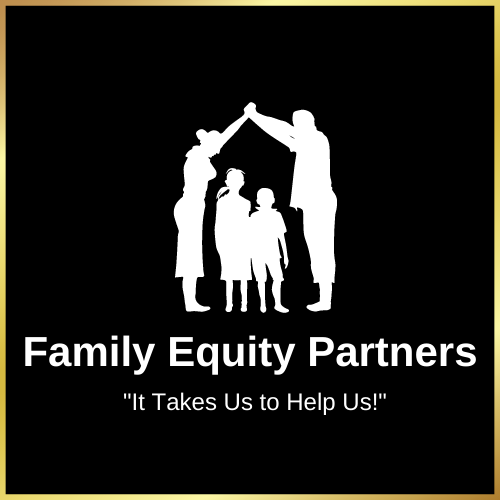Our Founder & Executive Director
Latoya Pitcher
Latoya Pitcher, a San Francisco native with 24 years of community development experience, founded Family Equity Partners (FEP), after several dehumanizing experiences in education, economics, housing, and health/ wellness service centers and agencies throughout San Francisco and the Bay Area. She has worked as a Software Quality Assurance Leadership Consultant for 13 years, specializing in utilities and municipalities with a track record for being a results-oriented, organized analyst and leader with a keen understanding for connecting people and processes to technology.
Ms. Pitcher has a rich set of experience and expertise in software and human services systems and applications, in addition to organizing and mobilizing people in designing, implementing and evaluating equitable social justice solutions. Ms. Pitcher’s social justice advocacy legacy began as a small child watching her mother, maternal grandmother, and paternal grandfather serve people and the community with respect, dignity, and integrity.
The Beginning
Ms. Pitcher’s training in housing and economic justice began as a small child attending tenant association meetings with her mother in the San Francisco Housing Authority’s Public Housing Developments and going to work with her mother on Bring Your Daughter to Work days. Observing her mother and other Black residents advocate for public housing residents to be served with respect, decency, and dignity as well as properly informed of their tenants rights, Ms. Pitcher learned the importance of, and how to use, self-empowerment tools. As a San Francisco Public Housing Authority Administrative Assistant, Assistant Property Manager, and Acting Property Manager her mother would often coach residents struggling with timely rent payments on how to create and maintain a budget, build and repair credit, and how to leverage their budgeting skills and good credit to purchase property. While this was not her mother’s job nor was it normal practice by Public Housing staff, this taught Ms. Pitcher how housing played a key role for building generational wealth and the importance of financial literacy.
Ms. Pitcher’s training in social justice in the form of the health and wellness for Black people and the Black community began by attending meetings at the Edgewood Center for Children and Family services and various social service agencies within the city and county of San Francisco with her maternal grandmother. Listening to her grandmother advocate for Black children in foster care to be placed in homes with safe, biological relatives or Black foster homes and explaining how it was critical to the child’s mental and emotional health and sense of belonging in their households and community. Her grandmother also advocated for holistic and equitable support for foster parents including for biological relative foster parents to be afforded the same resources and supports as non-biologically related foster parents. This taught Ms. Pitcher how health and wellness extended beyond medical and dental services, and the importance of cultural and generational guidance in the development of children and youth’s values and moral compasses; which are key to maintaining healthy, happy, respectful black families and communities.
Ms. Pitcher’s training in education, housing, and economic justice came in the form of attending community meetings occasionally throughout the week and post Sunday dinner conversations and debates with her paternal grandfather. During the community and meetings, she would observed through how advocacy and partnerships connected neighbors to neighbors, neighbors to neighborhoods, and people to policies and politics. During the post Sunday dinner conversations and debates, she was challenged to know and love God for herself, think and speak with conviction, and plan her own legacy of service with empathy.
The Journey
After experiencing a great deal of success in community development work in San Francisco providing job training, basic financial literacy, life skills, and college preparation services to youth ages 13-24, Ms. Pitcher wanted to learn more to offer more to the community. She moved to the East Bay and begin working for the National Association of Real Estate Brokers (NAREB) Investment Division (NID) and the NID-Housing Counseling Agency. Through NID, she supported several residential, commercial, and mixed use real estate projects as a Real Estate Salesperson and through NID-HCA she supported the executive team in organizing national trainings and monitoring and auditing 51+ offices across 37 states in compliance with federal and state real estate laws, HUD housing program requirements, and the organization’s policies, procedures, bylaws, and operating agreements. This is where Ms. Pitcher gained a wealth of financial literacy, housing, investment, and entrepreneurship knowledge and training that she planned to bring back to her hometown and help Black San Francisco build generational wealth.
However, life had more it wanted to teach Ms. Pitcher before she could re-launch her mission of service in San Francisco. She became a mother and experienced first hand the treatment of Black Women in Health Care and quickly learned of the contributing factors to high Black maternal and infant mortality rates. As her children grew, she began looking for STEAM (Science, Technology, Engineering, Arts, and Mathematics) enrichment programs outside of school and found they were scarce or expensive in the East Bay. So in an effort to offer her children the best quality of life, she moved back to San Francisco and in the process learned the key barriers to housing experienced only by Black people.
The Arrival
Upon the inception of FEP, the purpose guided the work. The work began as a series of projects based on strategic partnerships with government, Community Based, Faith Based Organizations, and BIPOC owned/ led businesses to design, implement and evaluate solutions, and advocate in public forums to eradicate systemic racism and anti-black practices experienced only by foundational Black families.


